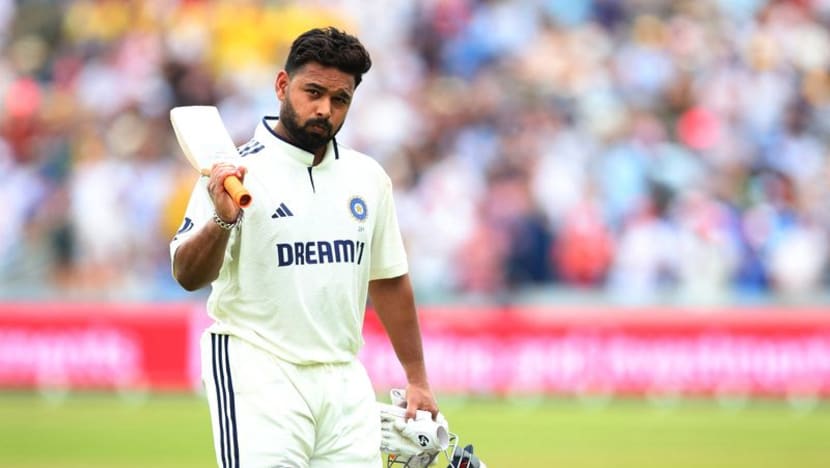

Rishabh Pant's aggressive yet measured innings propelled India to a dominant position on the second day of the first Test against England at Headingley, before a dramatic collapse saw England fight back. Resuming the day at 359 for 3, India looked set for a massive total, thanks to Pant's explosive hundred and Shubman Gill's masterclass.
Pant, who was unbeaten on 65 overnight, wasted no time in asserting his dominance. He smashed Shoaib Bashir for a massive six to bring up his century in just 146 balls, his seventh in Test cricket. In doing so, he surpassed MS Dhoni to become the Indian wicketkeeper with the most Test centuries. Pant celebrated the milestone with a unique somersault, showcasing his exuberance.
Pant's innings was a blend of aggression and calculated risks. He targeted the spinners, using his feet to great effect and dispatching anything loose to the boundary. He was particularly severe on Bashir, whom he hit for multiple sixes. However, he also showed restraint against the likes of Ben Stokes and Chris Woakes, respecting their quality and avoiding unnecessary risks. Pant's knock of 134 off 178 balls included 19 boundaries and four sixes, and it provided the impetus India needed to build on their overnight score.
Alongside Pant, Shubman Gill continued his magnificent innings, reaching his highest Test score of 147. The duo's partnership flourished as they dominated the English bowlers, seemingly on course to bat England out of the match. Gill's innings, which began on the first day, was a display of maturity and elegance. He combined solid defense with exquisite strokeplay, driving and cutting with authority. Gill's century was his first as captain in the longest format, making him only the fifth Indian to achieve this feat.
However, the complexion of the game changed dramatically after Gill's dismissal. What followed was an unexpected and stunning collapse, as India lost seven wickets for just 41 runs. England's bowlers, led by Ben Stokes and Josh Tongue, suddenly found their rhythm and exploited the overcast conditions to devastating effect.
Stokes, in particular, was instrumental in triggering the collapse. He bowled with venom and accuracy, extracting extra bounce and movement from the pitch. His relentless pressure paid off as he picked up crucial wickets, including that of Karun Nair for a duck. Tongue, also bowled with pace and hostility, troubling the Indian batsmen with his ability to move the ball both ways.
The Indian batting lineup, which had looked so solid just an hour earlier, suddenly crumbled under the pressure. Batsmen who had seemed comfortable against the English attack began to struggle, succumbing to poor shot selection and disciplined bowling. The collapse left the Indian innings in tatters, as they were eventually bowled out for 471. From a position of strength at 430/3, India had squandered their advantage, giving England a glimmer of hope.
While India still managed a decent first-innings total, the late collapse undoubtedly gave England a psychological boost. Stokes and Tongue finished with four wickets apiece, while Bashir and Woakes took one each. England's fightback showcased their resilience and determination, proving that they would not go down without a fight.
As play ended on Day 2, dark clouds gathered over Headingley, adding another layer of uncertainty to the match. Rain delayed the start of England's innings, leaving both teams anxiously waiting to see what the weather would bring. The Test match poised on a knife's edge, with both India and England having opportunities to seize control.